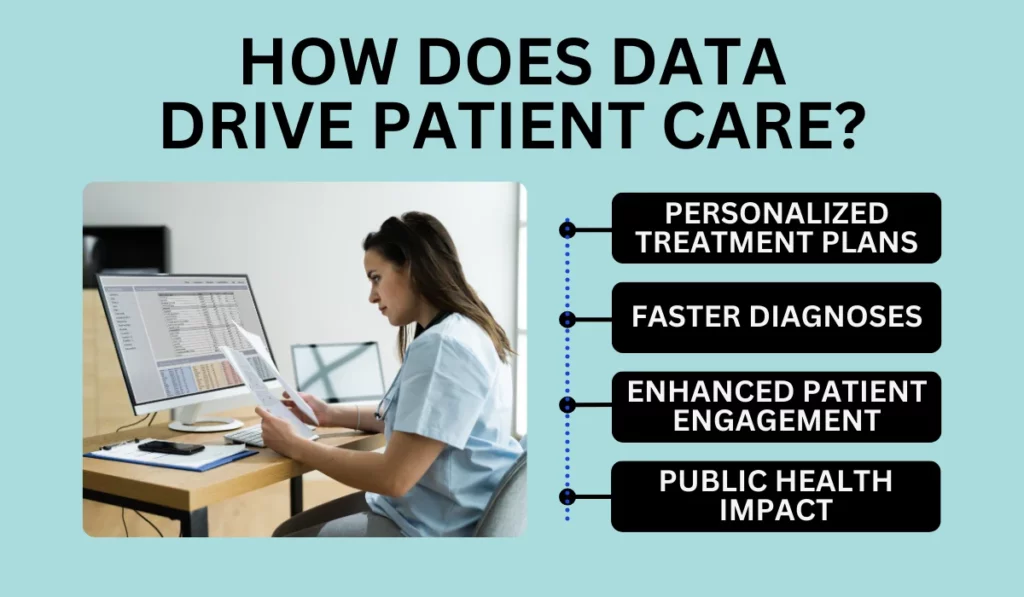Managed Service Provider
What Is IT Automation and How Can It Transform Your Company’s IT Strategy?
Elmo Taddeo

Healthcare data management is crucial to delivering high-quality patient care, optimizing operations, and maintaining compliance with regulations like HIPAA. Yet, despite the massive amounts of data generated through electronic health records, medical devices, and patient interactions, many healthcare organizations struggle to utilize it fully.
This results in limited insights, slow decision-making, and increased inefficiencies, risking patient health and compliance. Incomplete or inaccessible records can lead to treatment delays, regulatory violations, and unnecessary costs.
Strong data management allows healthcare providers to streamline workflows, improve patient engagement, and make real-time informed decisions. By addressing data challenges head-on, healthcare organizations can enhance operations, strengthen compliance, and deliver better patient outcomes.

Data analytics enable healthcare providers to tailor treatment to individual needs by analyzing electronic health records and wearable device data. This approach enhances patient health by identifying patterns and recommending personalized interventions.
Real-time healthcare data from multiple sources empowers clinicians to make swift, data-driven decisions, improving health outcomes and reducing the risk of delayed treatments.
Healthcare organizations leverage data-driven insights through portals and mobile apps, allowing patients to actively participate in their care and make informed decisions about their health information.
Aggregated healthcare data supports population health initiatives by identifying trends, predicting outbreaks, and guiding preventive care efforts to improve public health outcomes.
Effective data management helps providers personalize treatment and track health trends efficiently, resulting in more precise and proactive patient care.
Accurate data storage and management reduce errors in diagnoses, prescriptions, and treatment plans by ensuring that patient records are current, complete, and easily accessible.
Seamless data integration across healthcare systems enhances interoperability, allowing clinicians, payers, and administrators to work together efficiently and make informed decisions.
Proper healthcare data management ensures compliance with HIPAA and other regulatory requirements, protects patient information, and mitigates legal risks.
Optimized data utilization helps healthcare providers cut administrative expenses, eliminate redundant testing, and improve resource allocation, resulting in significant cost savings.
Incomplete or inaccurate medical records can lead to misdiagnoses, incorrect treatments, and potentially life-threatening situations for patients, compromising overall care quality.
Poor data governance can result in non-compliance with healthcare regulations, exposing organizations to hefty fines, legal actions, and reputational damage that can erode patient trust.
Ineffective data management leads to duplicate efforts, miscommunication between departments, and lost revenue due to billing inaccuracies, which impacts operational efficiency across healthcare providers.
Protecting sensitive healthcare data is essential to maintaining trust and compliance. Healthcare organizations should implement encryption, access controls, and regular audits to safeguard patient information and prevent data breaches.
Strong data security measures protect electronic health records and ensure compliance with regulations such as HIPAA.
Regular training programs are critical to ensuring healthcare professionals understand data privacy policies, best practices, and their role in maintaining data security.
Proper training empowers clinicians and administrative staff to handle patient records responsibly, reducing the risk of errors and unauthorized access.
Keeping healthcare data management systems up to date is crucial to adapting to evolving regulations, technological advancements, and organizational needs. Regular updates enhance data quality, improve interoperability, and enable healthcare providers to automate workflows, ensuring seamless patient care and operational efficiency.
At Parachute, we provide healthcare data management solutions to enhance cybersecurity, efficiency, and regulatory compliance for healthcare providers and organizations. Our expertise helps healthcare systems manage their patient data with confidence and precision.
Effective healthcare data management is key to improving patient outcomes and streamlining operations. Contact us today to discover how Parachute can help your organization enhance its data strategy and achieve better results.